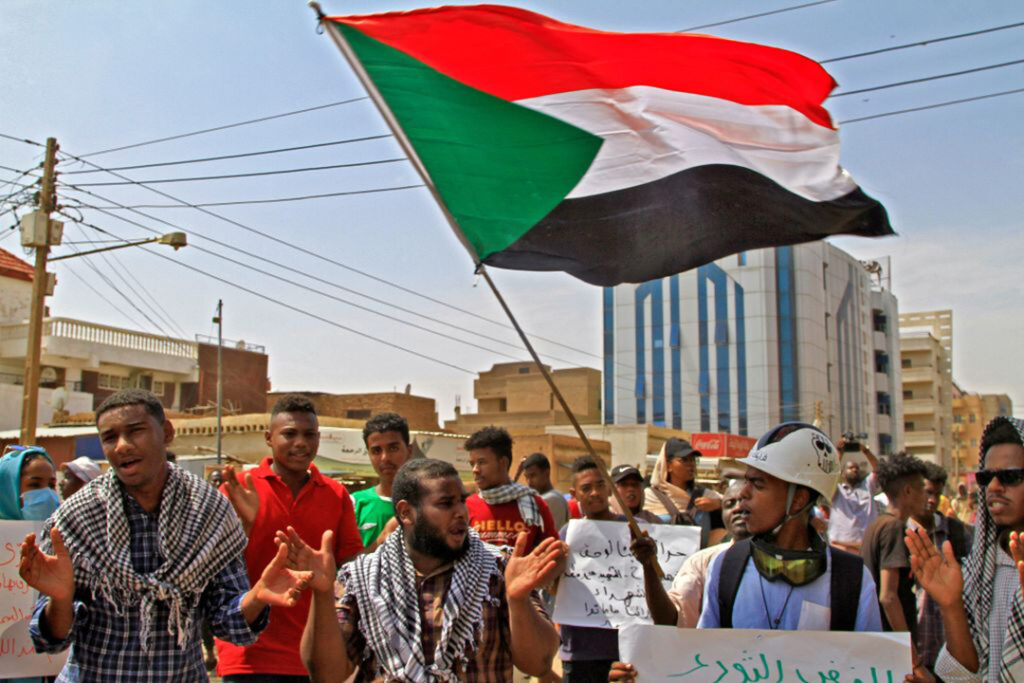ADF STAFF
In its latest bid to remain in power, the military junta that took control of Sudan nearly a year ago is supporting a proposal that would make the military the country’s supreme authority.
The move has sparked outrage among pro-democracy protesters and led to fears of widening turmoil.
“Sudan’s democratic fate is in the balance,” wrote Guma Kunda Komey, a former advisor to Sudan’s prime minister, and John Goodman, an expert in conflict resolution. “Hundreds of thousands of Sudanese are in the street, risking their lives for peaceful change. Yet the world is not paying attention.”
In July, junta leader Gen. Abdel Fattah al-Burhan announced that the military would no longer participate in the negotiations led by the United Nations, African Union, and the Intergovernmental Authority on Development in East Africa (IGAD). These negotiations had been intended to chart a pathway to a return to democracy.
In that same announcement, al-Burhan proposed creating a High Council of the Armed Forces composed of leaders from the Sudanese Armed Forces and from the Rapid Support Forces loyal to his deputy and chief rival Mohamed Hamdan Dagalo, also known as Hemedti.
El Wasit El Bereir, secretary-general of the National Umma Party, which was pushed from power in the October 2021 coup, said the proposal was an attempt by the military to remain in control behind a façade of civilian administrators.
“The military will work from behind the curtain to guide them in the directions they want,” he told Radio Dabanga.
In an August interview, Dagalo conceded that the coup had failed to bring stability to Sudan.
“The situation now is worse than before,” Dagalo told BBC TV Arabic Service.
The proposal put forth in mid-August came from religious leader Al-Tayeb Al-Jed, calling for unelected military leaders to have the final say over a government run by civilian technocrats.
Since the October 2021 coup, Sudan has been cut off from international aid and financial assistance. It has experienced an economic crisis and a rise in fighting among ethnic groups in the Darfur region.
Through it all, civilians continue to take to the streets in Khartoum demanding a transition to democracy.
Government forces have killed 117 people, according to the United Nations, despite the fact that the protesters are unarmed. The killings have reinforced protesters’ demand that the junta leave power.
Protester Oumeima Hussein told France 24 that al-Burhan should be judged for all those killed since the coup. He promised that protesters “are going to topple him like we did to Bashir.”
Al-Burhan announced on television in July that the military would yield to a civilian government — a proposal that civilian leaders met with skepticism.
“We don’t have confidence in Burhan,” protester Muhannad Othman told France 24 as he sat atop a barricade. “We just want him to leave once and for all.”
To put Sudan back on a path to civilian rule, Komey and Goodman proposed three urgent steps in an article published in DevEx.
- Recognize the importance of youth leaders and give them a voice in the negotiating process.
- Rely on trusted international mediators who can lead civilian-to-civilian dialogue to reach an agreement on creating a new government as soon as possible.
- Set a firm timetable for adopting a constitution, holding elections and other milestone events.
“Sudan’s transition can still be saved,” Komey and Goodman wrote on August 31. “That would steady the Horn of Africa, which is facing widespread famine, and would be a victory for democracy. To do so will require top-level attention.”

